Until placing sixth at the 2013 Mr. Olympia, Jay Cutler hadn't placed lower than second in a bodybuilding competition in 12 years. He has put together an incredible run of 15 firsts and 11 seconds throughout that time. He had a record 10 top-two finishes at Mr. Olympia, including four victories. Before giving up, he won the Arnold Classic three times in a row. Ronnie Coleman, Dexter Jackson, and Phil Heath are all former Mr. Olympias, and they are the only three men who have defeated him since 2000.
He stopped competing for the first time in 15 years in 2012 while healing from a biceps injury sustained before the 2011 Olympia and instead concentrated on his business endeavors. The last time we saw Jay Cutler in posing trunks was at the 2013 Olympia. His 11 years of unwavering excellence will go down as one of the most impressive feats in bodybuilding history. We've compiled 25 strategies Cutler utilized to reach the heights where only Mr. Olympias resides and where he resided for more than ten years in honor of his 25 consecutive top-two performances.
Jay Cutler's Best Exercises For Mass and Strength
Jay Cutler's Top 3 Movements For Biceps
1- Hammer Curl
2- Dumbbell Curl
3- The Barbell Curl
Jay Cutler's Top 3 Movements For Triceps
1- Dips
One of the best workouts for engaging the triceps brachii muscle in the rear of your upper arm is the triceps dip. As you lift your hips off the ground, you should also engage your core.
We extend our elbows using our triceps. You utilize them for any daily tasks that call for a pushing motion because they are also used for pushing. This includes maneuvers like moving a grocery cart or a lawnmower.
2- Rope Press Downs
3- The French Overhead Press
Jay Cutler's Top 3 Movements For Chest
1- Dumbbell Flat Bench Press
The cousin of the barbell bench press, which is the preferred compound movement of many, is the dumbbell bench press. Lifters will typically find it simpler to set up and manage two relatively lesser weights.
Having said that, this motion is advantageous for gym visitors of all skill levels. It increases your barbell bench press, strengthens your entire torso, and might even help you develop additional muscle across your chest.
2- Incline Dumbbell Press
A free weight workout called the incline dumbbell press targets the chest, shoulders, and triceps, separately working each side of the body.
The incline press places greater emphasis on the front of the shoulder and the top part of the pectoral muscle groups than the more conventional flat bench press does. When the exercise is done regularly, this enables more noticeable upper chest hypertrophy (muscle growth).
3- Dumbbell Fly On Flat Bench
All of the pecs are targeted by the dumbbell flye, but those that link directly to your sternum are given the greatest attention. Development in this particular location provides the definite "chest separation" image. Moreover, compared to the flat bench press, the exercise is more effective in stimulating all types of chest fibers. Also, you don't have to lift nearly as much weight, and as the benches at any gym rapidly fill up, this is a practical substitute.
Jay Cutler's Top 3 Movements For Shoulders
1- The Side Lateral Raise
A powerful shoulder-strengthening exercise that targets the lateral head of the deltoid muscle is the side lateral raise. When done frequently, this can aid in the development of stronger, wider shoulders. You only need a couple of light dumbbells and enough shoulder range of motion to abduct your arms, which involves moving the weights out and away from your body until they create a "T" shape at your shoulders.
2- Dumbbell Shoulder Press
The dumbbell overhead press can be performed while sitting or standing, and the dumbbells can be twisted in a hammer grip or held horizontally at the shoulders. This exercise can be incorporated into any upper body strength routine.
Barbell overhead presses are another variation of the overhead press. Although this exercise targets the same muscles unless you can lift a barbell repeatedly, it may be too challenging for some people. Barbells are too heavy for tiny novices because they weigh 45 lbs when empty.
3- Rear Cable Fly
A solo exercise for the posterior muscles is the cable rear delt fly. Since an isolation movement "isolates" a muscle, this may seem perplexing. The phrase "single-joint exercise" might be more appropriate because the terminology is the main cause of misunderstanding.
The shoulder is the joint where the cable rear delt fly movement happens. The arms are brought back and spread out like a great hug as this occurs. Do you know how to fly a cable chest? You pull backward rather than forward, doing the same thing.
Jay Cutler's Top 3 Movements For Abs
1- Regular Sit Up
Sit-ups are a great core workout since they work your lower back, hip flexors, and abdominal muscles. Sit-ups won't hurt your back if you perform them slowly and carefully; on the contrary, they can help with digestion, muscular development, and posture over time.
2- Rope Crunches
An abdominal exercise called a rope crunch makes use of a rope attachment on a cable machine. In contrast to traditional crunches, you perform this workout while kneeling and applying resistance from a weighted wire.
Cable rope crunches, rope ab crunches, kneeling rope crunches, and weighted rope crunches are other names for this workout. These all refer to the same exercise.
The rope attachment is also the one that is utilized the most because it is simple to hold. But, you may also use a handle or a bar as a cable attachment.
3- Hanging Leg Raises
The bro-split of many bodybuilders includes the hanging leg lift. Hanging leg rises to assist in isolating the core while testing your hip flexors and abdominal muscles from a beginning position that resembles the fundamental pull-up exercise. When they are used in the movement, the abdominal muscles, obliques, and even the quadriceps are helped to contract during this core-muscle training exercise. There are several variations of the hanging leg raise exercise, which is often performed by pulling yourself up.
Jay Cutler's Top 3 Movements For Back
1- Reverse Grip Pull Down
The reverse-grip lat pulldown improves forearm, bicep, and back strength. The biceps and forearms receive a little bit more attention when using the underhand grip. The lower back's stability is also enhanced by this workout.
2- Bent Barbell Row
Because it's a thorough activity for developing a base of size and strength, the barbell row is frequently regarded as one of the most fundamental workouts, right up there with the Big Three powerlifts (squat, bench press, and deadlift). It aids in building larger, more powerful arms as well as a thicker, wider, stronger back.
3- Seated Cable Row
The sitting cable row strengthens the back and forearm muscles. It is a great all-around compound exercise for strengthening the middle back and provides helpful arm work. 1
With a weighted horizontal cable machine with a bench and footplates, the seated cable row exercise is performed. An apparatus may be a standalone piece of gear or a component of a multi-gym. You can build on your upper-body strength with seated cable rows. For instance, in this series of weight training exercises for beginners, the seated cable row comes after the cable machine-assisted triceps pushdown.
Jay Cutler's Top 3 Movements For Calves
1- Standing Calf Raise
For any leg day, the standing calf raise is a necessary exercise. For instance, the Smith Machine calf raise is a powerful calf exercise that can help you build bigger calves.
A useful tool for safely increasing the volume of your calf workout is the use of weight plates rather than a machine or your body weight. The smith machine standing calf rise can help you efficiently target the lower body in ways that a calf raise machine simply cannot, provided you use it with the right range of motion.
2- Seated Calf Raise
Technically speaking, the seated calf raise is a single-joint isolation exercise that uses free weights or a machine equipped with free weights to target the whole set of muscles in the calf.
Sitting calf rises, in contrast to standing calf, raises, enable greater isolation of the legs generally and permit lifters who are unable to load weight on their back or torso to train their calves without fear of harming themselves.
3- Donkey Calf Raise
A bodyweight exercise that works your lower leg muscles is the donkey calf raise. Standing with your feet shoulder-width apart, do donkey calf raises. Bend your upper body forward and hinge your hips. While you tiptoe, press onto the fronts of your feet and contract your calf muscles. Resuming your normal stance, repeat the motions.
Jay Cutler's Top 3 Movements For Leg
1- Squat
Squats are regarded as a crucial workout for boosting the size and strength of the muscles in the lower body as well as for strengthening the core. The quadriceps femoris, adductor magnus, and gluteus maximus are the main agonist muscles employed in the squat. Together with other muscles, the squat isometrically engages the erector spinae and the abdominals.
2- Leg Press
You can use heavy loads to train your legs using the leg press. Because you're not stressing your spine, you'll be able to work with more people than you could with free weight workouts (exercises that use objects like dumbbells, barbells, and kettlebells).
A machine exercise that works the quadriceps is the leg press. Lifters who prefer to lift while seated rather than standing with a load on their spine are fond of it.
3- Leg Extension
Leg extensions are often workouts performed on a lever machine. You elevate a padded bar with your legs as you sit on a padded seat. The rectus femoris and vastus muscles on the front of the thigh are primarily worked throughout the workout. As part of a strength training routine, you can utilize this exercise to develop lower body strength and muscular definition.

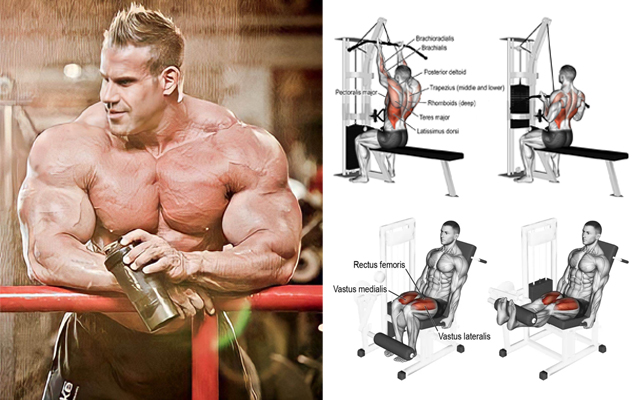
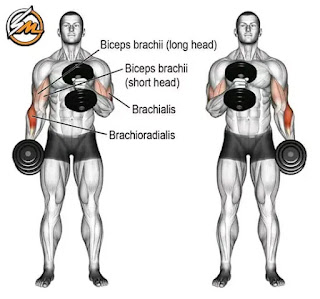



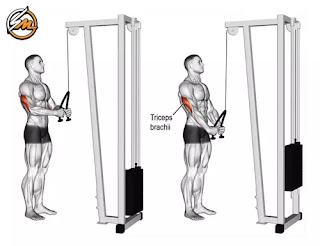
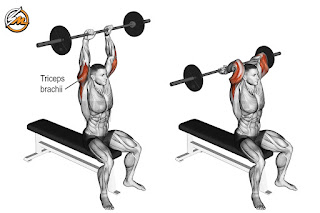
.jpg)
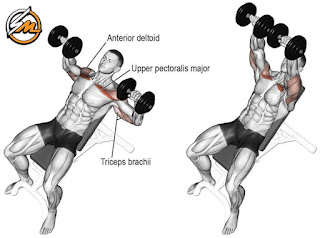

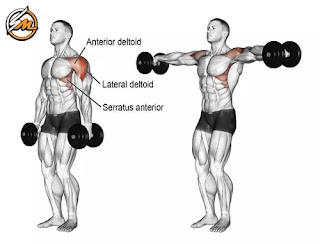

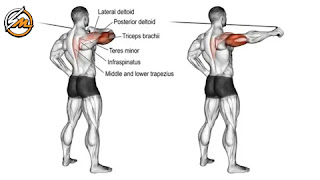

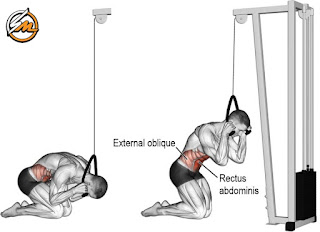


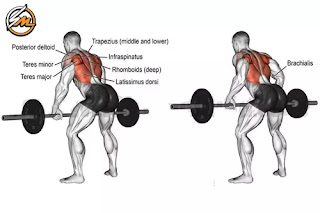


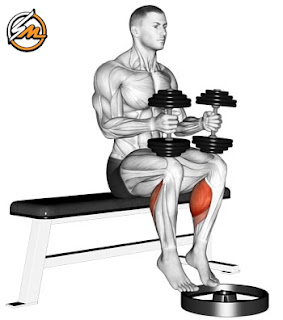

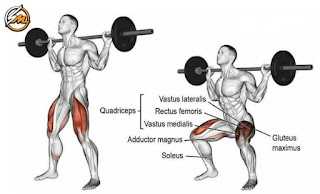




.jpg)


0 Comments